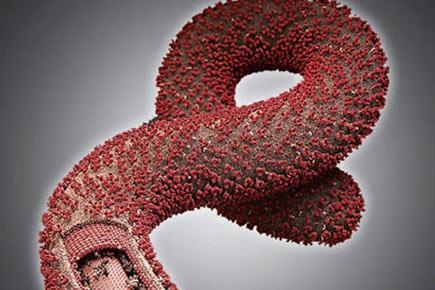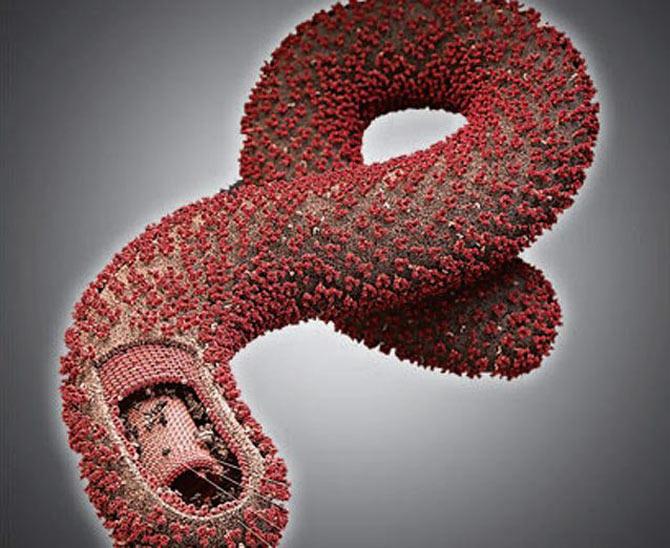Researchers from Massachusetts Institute of Technology (MIT) have developed a paper strip that can quickly diagnose Ebola as well as other fevers such as dengue and yellow fever in just 10 minutes

Washington: Researchers from Massachusetts Institute of Technology (MIT) have developed a paper strip that can quickly diagnose Ebola as well as other fevers such as dengue and yellow fever in just 10 minutes.
The new device relies on lateral flow technology which is used in pregnancy tests and has recently been exploited for diagnosing strep throat and other bacterial infections.
ADVERTISEMENT

Unlike most existing paper diagnostics, which test for only one disease, the new MIT strips are colour-coded so they can be used to distinguish among several diseases.
To achieve that, the researchers used triangular nanoparticles, made of silver, that can take on different colours depending on their size.
The researchers created red, orange and green nanoparticles and linked them to antibodies that recognise Ebola, dengue and yellow fever.
As a patient's blood serum flows along the strip, any viral proteins that match the antibodies painted on the stripes will get caught and those nanoparticles will become visible. This can be seen by the naked eye. For those who are colour blind, a cellphone camera could be used to distinguish the colours.
"When we run a patient sample through the strip, if you see an orange band you know they have yellow fever, if it shows up as a red band you know they have Ebola and if it shows up green then we know that they have dengue," explained Kimberly Hamad-Schifferli, visiting scientist in MIT's department of mechanical engineering.
This process takes about 10 minutes, allowing health care workers to rapidly determine if patients should be isolated, helping to prevent the disease from spreading further.
The researchers hope to obtain the US Food and Drug Administration (FDA) approval to begin using the device in areas where the Ebola outbreak is still ongoing.
Hamad-Schifferli and Lee Gehrke from MIT's Institute for Medical Engineering and Science (IMES) described the new device in the journal Lab on a Chip.
 Subscribe today by clicking the link and stay updated with the latest news!" Click here!
Subscribe today by clicking the link and stay updated with the latest news!" Click here!







